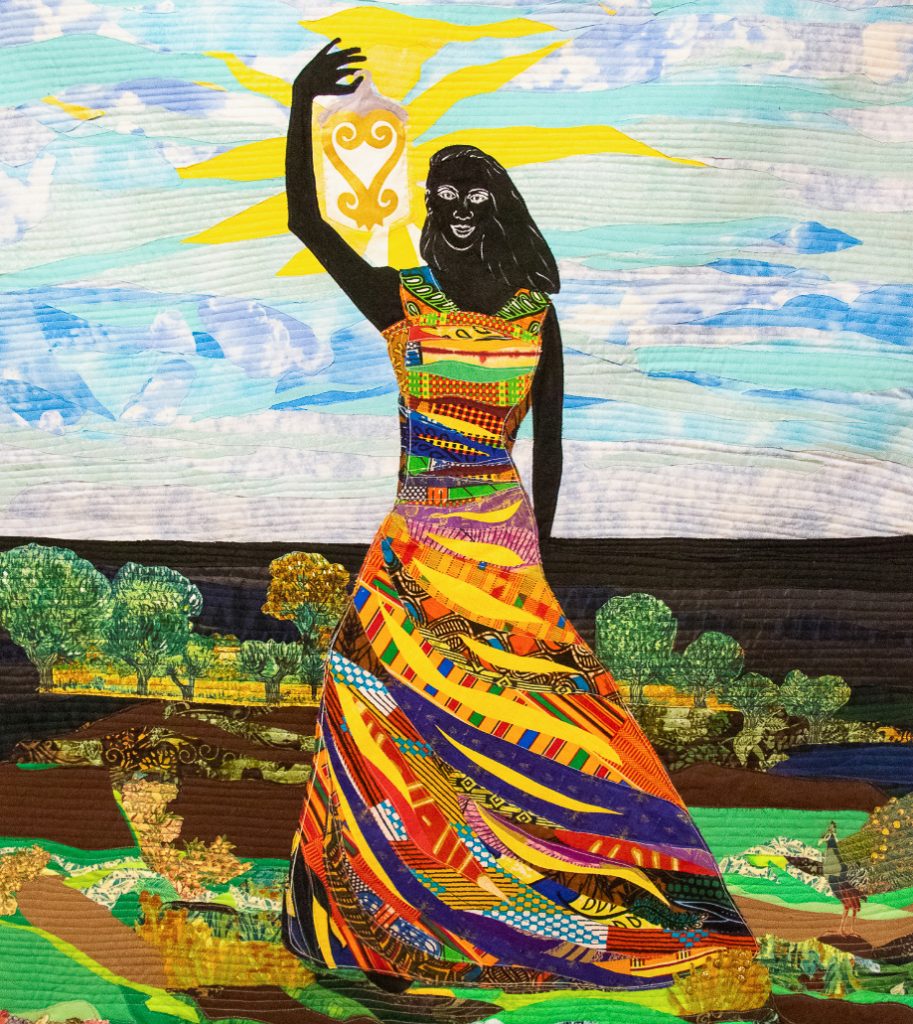
Tracy Lloyd McCurty ’03 honors her ancestors, whether that’s her late mother who continues to inspire her, her great-grandmother Lizzie Webb, who was born in the 19th century and worked as a sharecropper and independent farmer, or the Black farmers who have tended U.S. soil for more than 500 years. McCurty’s passion for social and economic justice motivated her to co-found and serve as executive director of the Black Belt Justice Center, a regional legal and advocacy nonprofit created to support Black farmers, landowners, and cooperatives throughout the South.
Earlier in her career, McCurty worked as a juvenile services program staff attorney with the Public Defender Service for the District of Columbia, a solo practitioner representing indigent parents charged with abuse and neglect, and as a policy advisor to the Rural Coalition, where she devised policy strategies to advance the equitable inclusion of historically underserved and limited resource farmers in federal agricultural programs.
Since the Black Belt Justice Center’s launch in 2012, McCurty has worked to help Black farmers retain land, develop land-based cooperatives, and expand community wealth. Her passion for empowering Black farmers was nurtured during law school when she worked on a discrimination claim associated with the historic Pigford v. Glickman class action racial discrimination lawsuit for a Black farmer through her internship with the North Carolina Association of Black Lawyers’ Land Loss Prevention Project.
Active at Carolina Law with the Black Law Students Association (BLSA) and the National Lawyers Guild (NLG), McCurty recalls partnering with law students at North Carolina Central University to offer “Know your Rights” programs in public housing communities throughout Durham, her hometown. She says that Carolina Law was influential in shaping her as a public interest attorney.
“Law school gave me the confidence and the tools to become an advocate for justice,” says McCurty. “I consider myself a community-based attorney who lives by the principle of being in deep allyship with my clients and advocating for those who need their voice amplified, something that I learned from public defender service.”
McCurty’s work through the Black Farmers’ Appeal: Cancel Pigford Debt Campaign addresses more than a century of racial discrimination by the U.S. Department of Agriculture (USDA) which has discriminated against Black farmers in the delivery of loans, subsidies, disaster assistance, and other support. Black farmers sued the USDA in Pigford v. Glickman and won one of the largest civil rights settlements against the U.S. government; however, due to the poor implementation of the Consent Decree, thousands of Black farmers were left in unconscionable debt, debt offsets, farm foreclosures, and with no legal recourse to save their family farms. Only 4.8 percent of the $1B settlement went to debt cancellation.
McCurty helped develop recommendations for the remaining $8M Cy Pres Fund in her role as a representative on the Black Farmers Council for the second Black farmers’ lawsuit, In Re Black Farmers Discrimination Litigation Settlement (commonly known as “Pigford II”). Since neither settlement offered adequate resources and debt cancellation for Black farmers to recover from decades of racial discrimination, she has worked on other remedies, both in court and through policy change including Presidential Candidate Senator Elizabeth Warren’s comprehensive policy platform to eradicate institutional discrimination within USDA, the Justice for Black Farmers Act (introduced in 2020 and reintroduced in 2021), the Emergency Relief for Farmers of Color Act of 2020, the American Rescue Plan Act of 2020, and the Build Back Better Act of 2020 (currently, stalled in the U.S. Senate). Decades of farmer-led organizing combined with heightened efforts over the last three years through the Black Farmers’ Appeal: Cancel Pigford Debt Campaign laid the groundwork for President Joe Biden’s American Rescue Plan Act of 2021, which provides $5B in debt cancellation, tax relief, and related services for Black, Indigenous, Latino, Asian, and farmers of color.

McCurty is also helping the Black Belt Justice Center evolve with the launch of the Acres of Ancestry Initiative/Black Agrarian Fund. Inspired by the Freedom Quilting Bee, a textile-craft cooperative founded by Black women in Alberta, Alabama in 1966, McCurty describes the initiative as a multidisciplinary ecosystem rooted in fiber arts and other earth-based crafts to regenerate custodial landownership, ecological stewardship, and food and fiber economies in the South. On MLK Day of Service, the Acres of Ancestry Initiative debuted the Griots of Cotton, Indigo, & Clay traveling exhibition at the Charleston City Gallery at Waterfront Park. The exhibition features over 100 pieces of artworks commissioned by over 50 fiber artists, ceramicists, sweetgrass weavers, and blacksmiths in the South Carolina Lowcountry, the Black Belt South, and the African Diaspora.
Bernice Atchison, an 84-year-old Black farmer from Jemison, Alabama, told McCurty, “You need two feet to stand and two wings to fly. Your feet are your strength, and your wings are your freedom.”
McCurty carries this elderwit in her work, she says “North Carolina A&T (her undergraduate alma mater) and Carolina Law both gave me my strength and my imagination has let me soar.”



